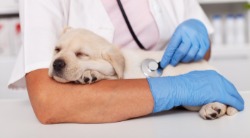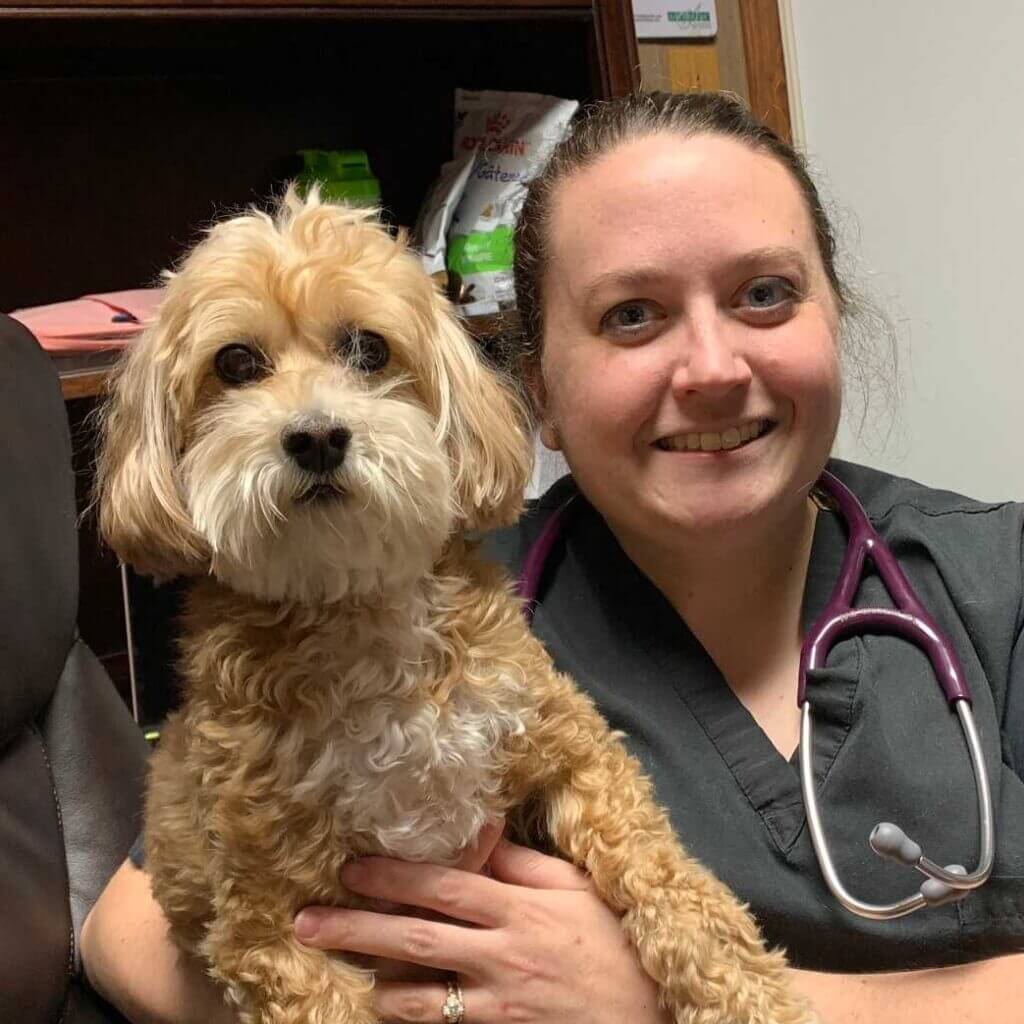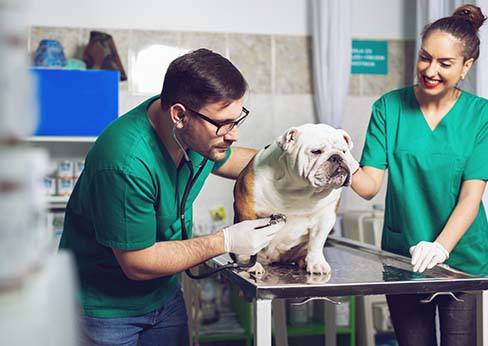In this post:
- What to expect during a visit to the veterinarian?
- What to expect from your puppy’s first vet visit?
- What to expect with older dog’s veterinary care?
- 6 Tips to De-Stress Your Pet’s Vet Visit
Did you just get a new dog? Your first visit to the vet may be scary for you and your dog. These are things to expect when you first take your dog to the vet.
What to expect during a visit to the veterinarian?
A lot of pet parents have questions about what things need or may need to be done at the different life stages that your puppy or kitten may come in with. In general, that really will vary from pet to pet and certainly based on their track history and whether they have had problems in the past or not.
There certainly are certain breed predispositions that your vet is going to be looking for and watching out for but in general as a young pet just like with people, very rarely are they going to come across problems. Most of those problems may be related to dietary problems, they may be related to skin problems. But as pets age just like with people, certain problems certainly may arise that need to be addressed or monitored or be aware of. So often times when dogs are reaching their mid-five, six, seven years of age depending on the breed, your vet may recommend doing senior profile screening which may check a blood panel, a urine sample, and a thyroid level for instance. So, that really will depend on the age, the breed, and whether they have had prior medical problems in the past or not.
Questions you should ask your vet on the first visit:
- Is My Pet at a Healthy Weight?
- Could I be providing more appropriate food?
- Is That [Insert Odd Behavior Here] Normal?
- Is My Pet Up to Date on Shots?
- Does My Pet Need a Dental Cleaning?
- Does My Pet Need a Blood Test?
- What Flea/Tick Meds Do You Recommend for My Pet?8. What are these Lumps and Bumps?
- Does My Pet Need a Rectal Exam?
- Can You Please Explain my Bill?
What to expect from your puppy’s first vet visit?
Typically, when you have adopted a pet, it is usually going to be between six to twelve weeks of age. When they are coming in for their first examination, the things that your vet is looking for and going to be discussing are their vaccination series, the deworming that they are going to need to perform, to make sure that they are clear of internal parasites which are very common, to discuss their potential lifestyle. Whether they are going to be very active in the outdoors, whether they are going just to be a homebody, whether they are just going to be a little lap dog.
At that time, as well your vet certainly will discuss nutritional aspects, things to look for in diets that coincide with a pet owner’s wishes and feelings with regards to diet, as well, and discuss the pros and cons of different options that are out there.
Occasionally, your vet would discuss the potential need for any long term monthly preventive medications again that would certainly depend on the pet’s lifestyle and planned lifestyle.
And in general, just to get a proper examination on either puppy or kitten to make sure that there are any abnormalities that they might have been born with or need to be addressed with that first examination.
What to expect with older dog’s veterinary care?
There are a lot of pet owners that are out there that are really looking to adopt an older pet from a shelter and one of the challenges that we run into, and owners run into, is really not knowing what health problems that their pet may or may not come in with.
For instance, older patients that, say a dog that is six to seven years of age is starting to enter the middle ages where they may be having emerging age-related dysfunction. For example, hronic kidney problems, chronic liver issues, or may just simply haven’t had adequate nutrition and preventative care throughout their life. So, that’s a critical time to have them evaluated and get checked out, to determine what steps we may need to take to address some of those issues.
Should you avoid adopting an older dog because of health issues?
Adopting an older pet doesn’t necessarily mean you are going to be adopting a pet with problems. What it does mean is that there are some responsibilities and things that you need to address with your vet and that is one of the reasons why you should get them in to be evaluated as soon as you can. This is so your vet can address any of these problems if necessary. In general, those pets are really just needing to have a good quality home with good nutrition with someone who really is caring for them.
6 Tips to De-Stress Your Pet’s Vet Visit

Make the vet feel familiar to your pet: Life gets crazy and your schedule can be full. But if you ever have a chance to just stop in at the vet with your pet to say hi, it may make them feel more comfortable. Going to a place they are familiar with may make the experience a little easier when they have an actual appointment.
Be prepared: When you are stressed, your pet may be too. Make time the night before to get everything together for the vet so you are ready when the time comes. It’s also important to leave in time so you are not rushed.
If your pet is sick, don’t wear them out: Some pet owners like to have their dog well prepared by bathing and grooming them beforehand. By the time that is over, they are not up to a visit to the vet. Be aware of how your dog is feeling and don’t put unneeded stress on them. The vets won’t be upset about it.
Make them feel at home: One of the best ways to make your pet feel at home and comfortable during a visit to the vet is bringing along one of their favorite toys. You may have to check with your vet beforehand to make sure this is okay.


Don’t make unnecessary visits: If your pet is constantly having anxiety about going to the vet, make sure the visit is necessary. Call the vet if you have questions or concerns before making the trip with your pet, there may not be any reason to go in.
Spoil your pet (a little extra) before and after the visit: Most dogs are are spoiled already. But a little extra love and attention may just calm them down.
Unfamiliar places can be scary, even for your pet! The stress of that and being sick can take a big toll on your pet’s behavior. Put yourself in their shoes and remember these tips for a hopefully easier and more relaxed next trip.
Final Thoughts
Working with your vet to make sure that your dog is healthy and is getting the proper care that they need will help them live a long and happy life. Your vet can be a source of very valuable information on things to look for and what to do in case of an emergency. Your first vet visit with your pet should be very informative and relaxing for you both you and your dog.
Special thanks to:

Patrick Miles, DVM
Patrick Miles, DVM is owner and veterinarian at Priceless Pet Clinic in Normandy Park WA. He has worked in emergency medicine since graduating from veterinary school and spent seven years at Animal Critical Care and Emergency Services.





